Intro
Boost potassium intake with top 10 rich foods, including bananas, leafy greens, and sweet potatoes, to support healthy blood pressure, muscle function, and electrolyte balance.
Potassium is an essential mineral that plays a crucial role in maintaining various bodily functions, including heart health, blood pressure, and muscle function. It is also important for maintaining healthy bones, nerves, and muscles. Despite its importance, many people do not consume enough potassium-rich foods in their diet. In this article, we will explore the top 10 potassium-rich foods that you should include in your diet to reap the benefits of this essential mineral.
Adequate potassium intake can help lower blood pressure, reduce the risk of heart disease, and promote healthy digestion. Potassium also helps regulate fluid balance in the body, which is essential for maintaining proper blood pressure and preventing conditions such as edema. Furthermore, potassium is important for maintaining healthy bones, as it helps regulate calcium metabolism and prevent bone loss. With so many benefits, it is essential to include potassium-rich foods in your diet to maintain overall health and well-being.
Incorporating potassium-rich foods into your diet can be easy and delicious. From fruits and vegetables to whole grains and lean proteins, there are many potassium-rich foods to choose from. By making a few simple changes to your diet, you can increase your potassium intake and reap the benefits of this essential mineral. Whether you are looking to improve your heart health, boost your energy levels, or simply maintain overall health, including potassium-rich foods in your diet is a great place to start.
Potassium Rich Foods
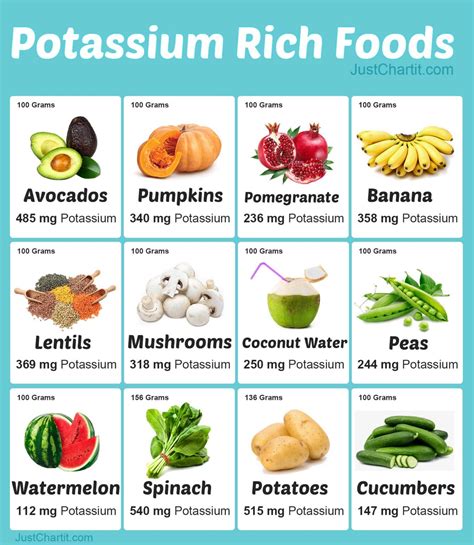
Potassium-rich foods are abundant and varied, making it easy to incorporate them into your diet. Here are the top 10 potassium-rich foods that you should include in your diet:
- Bananas: One medium-sized banana contains around 422 milligrams of potassium.
- Spinach: One cup of cooked spinach contains around 840 milligrams of potassium.
- Sweet potatoes: One medium-sized sweet potato contains around 542 milligrams of potassium.
- Avocados: One medium-sized avocado contains around 708 milligrams of potassium.
- Mushrooms: One cup of cooked mushrooms contains around 555 milligrams of potassium.
- Beans: One cup of cooked white beans contains around 1,189 milligrams of potassium.
- Lentils: One cup of cooked lentils contains around 731 milligrams of potassium.
- Nuts and seeds: Almonds, pumpkin seeds, and sunflower seeds are all high in potassium.
- Fish: Fatty fish like salmon and tuna are high in potassium.
- Dairy: Milk, cheese, and yogurt are all good sources of potassium.
Benefits of Potassium Rich Foods
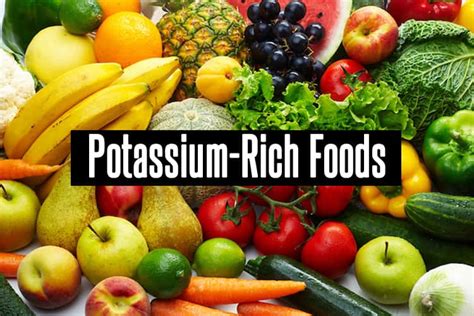
The benefits of potassium-rich foods are numerous and well-documented. Some of the key benefits include:
- Lowering blood pressure: Potassium helps regulate fluid balance in the body, which can help lower blood pressure.
- Reducing the risk of heart disease: Potassium helps lower blood pressure and reduce the risk of heart disease.
- Promoting healthy digestion: Potassium helps regulate fluid balance in the body, which can help prevent constipation and promote healthy digestion.
- Maintaining healthy bones: Potassium helps regulate calcium metabolism and prevent bone loss.
- Boosting energy levels: Potassium helps regulate fluid balance in the body, which can help boost energy levels.
How to Incorporate Potassium Rich Foods into Your Diet
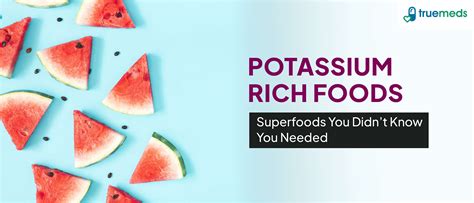
Incorporating potassium-rich foods into your diet can be easy and delicious. Here are some tips to help you get started:
- Start your day with a potassium-rich breakfast: Try having a banana or avocado toast for breakfast.
- Snack on potassium-rich foods: Try having a handful of nuts and seeds or a piece of fruit as a snack.
- Incorporate potassium-rich foods into your meals: Try adding spinach or mushrooms to your favorite dishes.
- Experiment with new recipes: Try making a potassium-rich smoothie or salad.
Potassium Deficiency
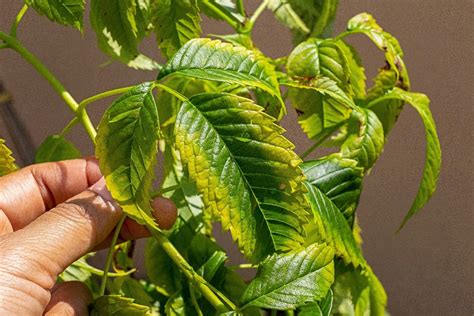
A potassium deficiency can occur if you do not consume enough potassium-rich foods in your diet. Some of the symptoms of a potassium deficiency include:
- Fatigue and weakness
- Muscle cramps and spasms
- Abnormal heart rhythms
- Constipation
- Bloating and water retention
Potassium Rich Foods for Athletes

Potassium-rich foods are especially important for athletes, as they help regulate fluid balance and prevent muscle cramps and spasms. Some of the best potassium-rich foods for athletes include:
- Bananas: A great source of potassium and easy to take on the go.
- Avocados: A rich source of potassium and healthy fats.
- Nuts and seeds: A good source of potassium and protein.
- Dried fruit: A convenient and potassium-rich snack.
Potassium Rich Foods for Heart Health
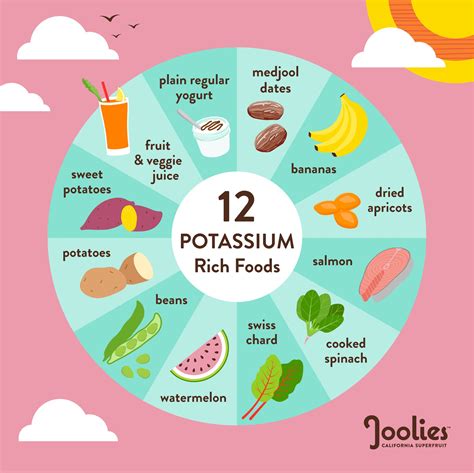
Potassium-rich foods are also important for heart health, as they help lower blood pressure and reduce the risk of heart disease. Some of the best potassium-rich foods for heart health include:
- Leafy greens: Spinach, kale, and collard greens are all rich in potassium.
- Fatty fish: Salmon, tuna, and mackerel are all high in potassium.
- Sweet potatoes: A rich source of potassium and fiber.
- Avocados: A rich source of potassium and healthy fats.
Conclusion and Final Thoughts

In conclusion, potassium-rich foods are an essential part of a healthy diet. By incorporating these foods into your diet, you can help lower your blood pressure, reduce your risk of heart disease, and promote healthy digestion. Whether you are an athlete or simply looking to improve your overall health, potassium-rich foods are a great place to start. So next time you are at the grocery store, be sure to pick up some bananas, avocados, and spinach, and start reaping the benefits of potassium-rich foods.
We hope this article has provided you with the information you need to start incorporating potassium-rich foods into your diet. Remember to always consult with a healthcare professional before making any significant changes to your diet. With a little planning and creativity, you can easily incorporate potassium-rich foods into your diet and start enjoying the many benefits they have to offer.
What are the symptoms of a potassium deficiency?
+A potassium deficiency can cause fatigue, weakness, muscle cramps, and abnormal heart rhythms.
How can I incorporate more potassium-rich foods into my diet?
+Try starting your day with a potassium-rich breakfast, snacking on potassium-rich foods, and incorporating potassium-rich foods into your meals.
What are some good sources of potassium?
+Good sources of potassium include bananas, avocados, spinach, sweet potatoes, and nuts and seeds.
Can I take a potassium supplement if I am not getting enough from my diet?
+It is always best to consult with a healthcare professional before taking any supplements, including potassium supplements.
How much potassium do I need per day?
+The recommended daily intake of potassium varies by age and sex, but most adults need around 4,700 milligrams per day.
We encourage you to share your thoughts and experiences with potassium-rich foods in the comments below. Have you noticed any benefits from incorporating these foods into your diet? Do you have any favorite potassium-rich recipes? Share your stories and help others learn about the importance of potassium-rich foods.
